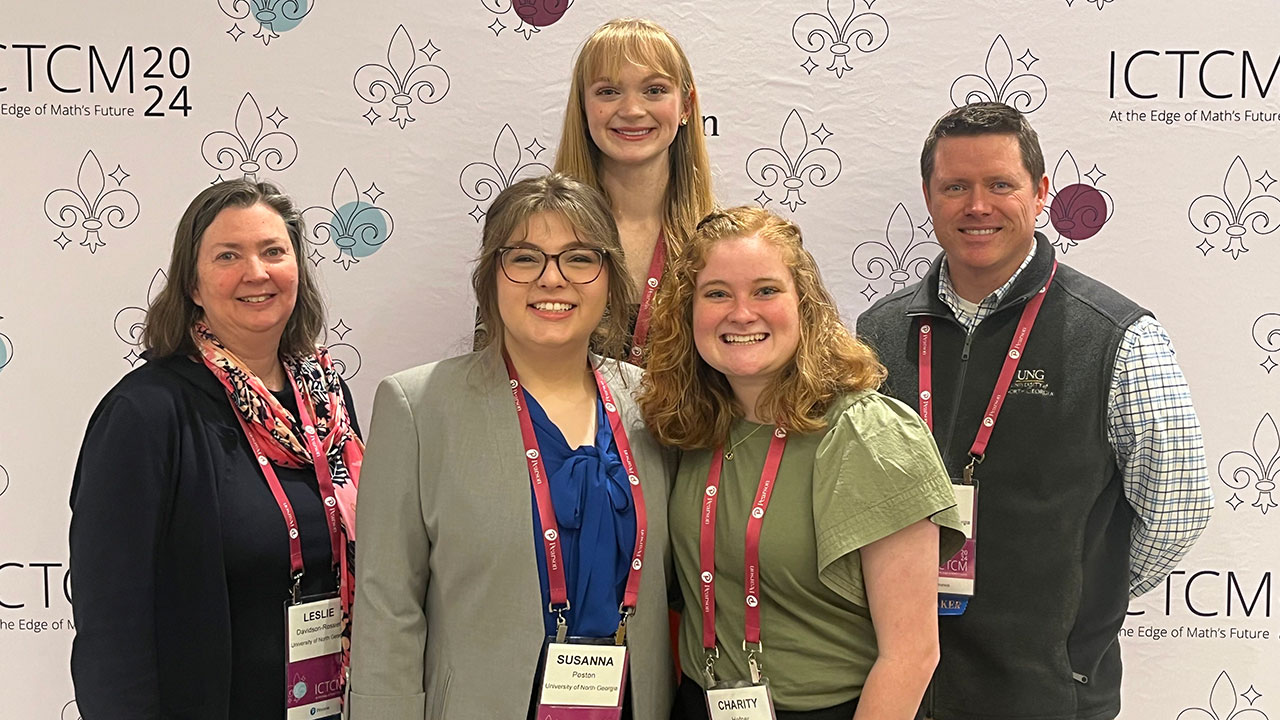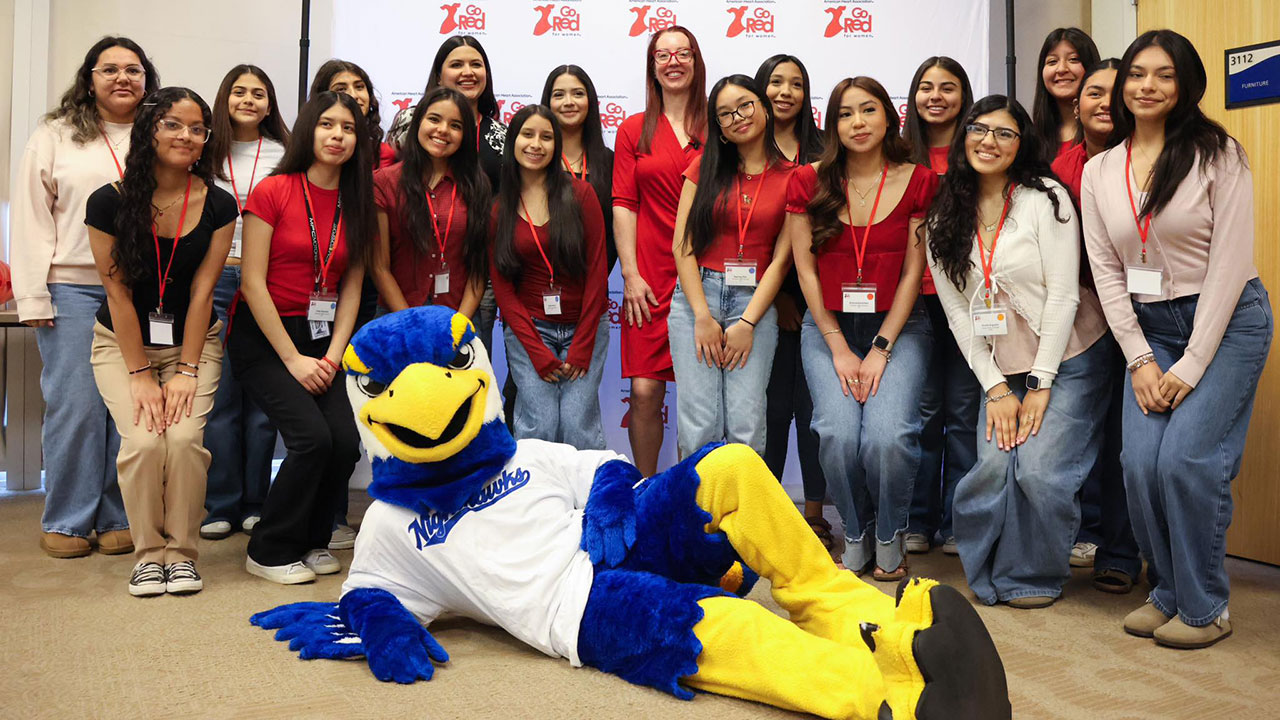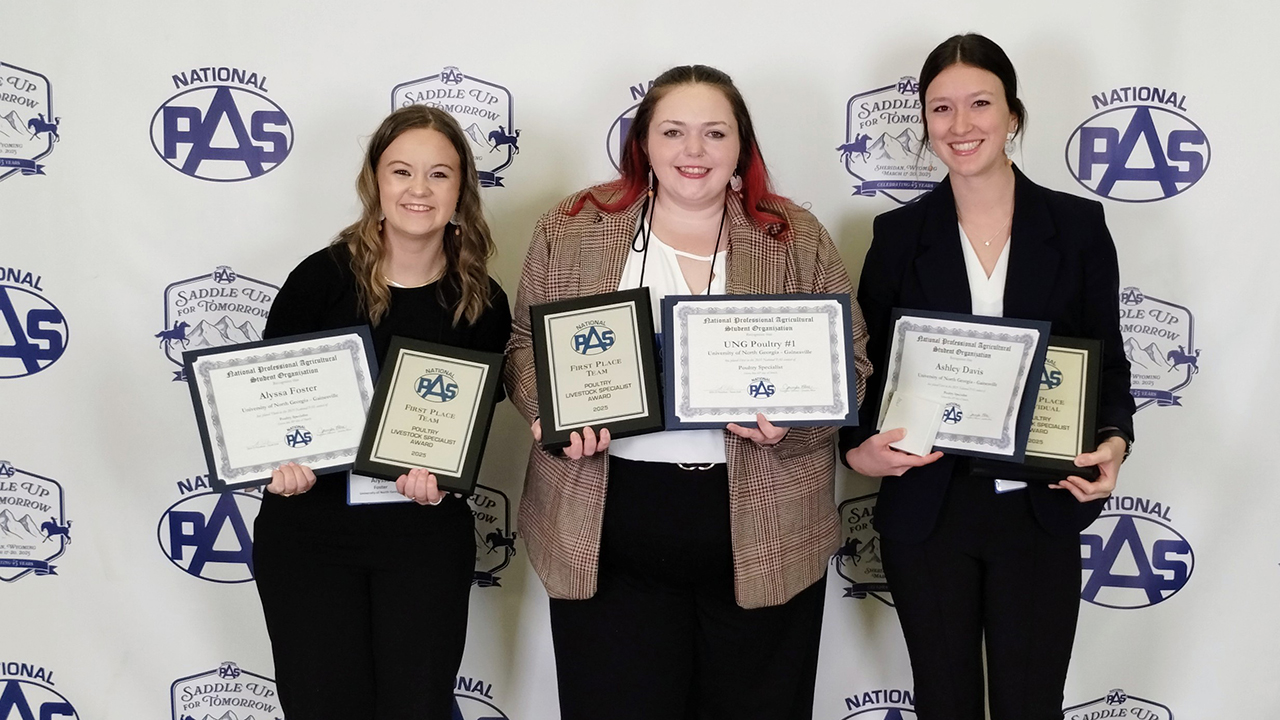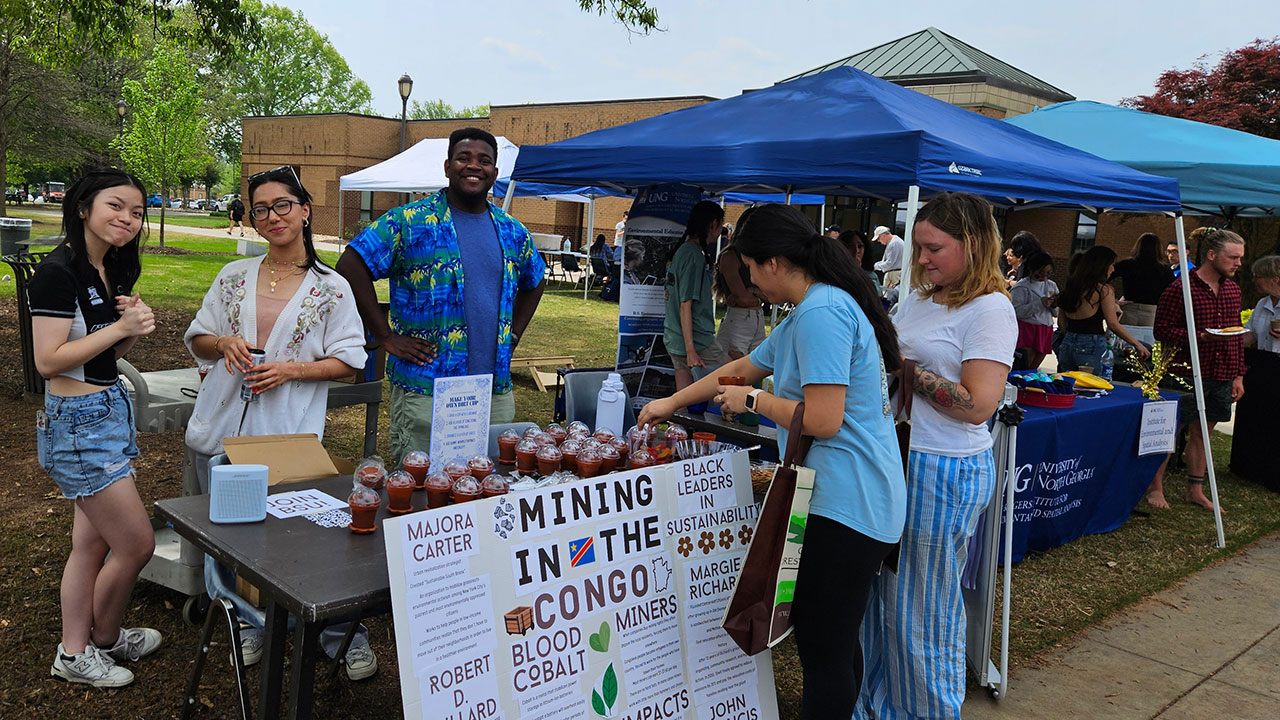Student helps faculty member expand bladder cancer research

Article By: Clark Leonard
Dr. Shannon Kispert has always been interested in the effects of cigarette smoking. For one of her latest research projects, the assistant professor of biology at the University of North Georgia (UNG) has enlisted student Jessica Nix to see how smoking facilitates
Kispert and Nix are investigating phospholipase A2 (PLA2) pathway proteins, which they believe can become conducive to tumor growth after exposure to cigarette smoke.
"With this new study we hypothesize that we will see a significant increase in the PLA2 pathway proteins when compared to nonsmokers," Nix said. "This means that these studies could provide potential therapeutic targets for cigarette-smoke-induced tumorigenesis and progression."
Kispert said they are the only group in the country investing the PLA2 pathway proteins' connection to cigarette smoking and bladder cancer.
"Our research consists of utilizing tissue samples from the bladders of mice who have been exposed long-term to cigarette smoke and determining the expression of those PLA2 mediators in those animals," Kispert said. "The technique we use is called immunohistochemistry, and Jess is working very hard at mastering this powerful technique that is vital for clinical investigations in animals and humans."
| Transcript |
This project builds on Kispert's cancer research from when she worked on her doctorate at St. Louis University School of Medicine (SLUSOM). Kispert and Nix still collaborate with SLUSOM.
Nix, a junior pursuing a degree in biology who is on an S-STEM Scholarship that offers a stipend of $4,362 per school year, welcomes the opportunity to work with Kispert.
"Working in a lab all day may seem boring to others, but it's the quest for the answer that keeps me zeroed in. The method we use for immunohistochemistry has a lot of procedures, but when performing them I find that I feel like a real scientist," Nix said. "Many of us suffer from impostor syndrome, myself included, but when I do research it feels like I get a little more confident and can express myself more professionally each time."
Nix is also part of the Ronald E. McNair Post-Baccalaureate Achievement Program, receiving a monthly stipend for continued research from the program that awards grants to prepare students for doctoral study.
Nix teaches some of her fellow students how to help. A lab and teacher assistant coordinator, Nix hosts sessions on research techniques and shares some of Kispert's papers with them. Nix said the other students are "shining like superstars."
Kispert said Nix, who ultimately wants to pursue a doctorate in biomedical science, is "just blossoming."
"She's an excellent candidate for graduate school. She's very motivated," Kispert said. "She's fantastic, easy to work with, very responsible."
Kispert received a $3,000 Center for Undergraduate Research and Creative Activities (CURCA) mini-grant to fund this bladder cancer research for 2018-19, with Nix as her hired student researcher.
"Thus far, we have seen significant increases in one particular player, prostaglandin E2," Kispert said. "We are continuing to investigate this pathway utilizing the funds from the grant Jessica received."
Nix has also secured grants of nearly $1,200 from groups including
Nix presented her work at the Georgia Undergraduate Research Conference, hosted by UNG in November 2018, and at UNG's Annual Research Conference on March 22. The Flowery Branch, Georgia, resident also will present her research at the Association of Southeastern Biologists (ASB) annual meeting set for April 3-6 in Memphis, Tennessee, and April 11 at the National Conference on Undergraduate Research (NCUR) at Kennesaw State University.
Nix credits Kispert for much of her success. She wants more students to find faculty mentors.
"She's giving me the



